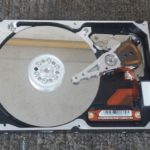
Let’s start by thinking about your most recent computer purchase. You walked into the store, looked at many overwhelming options, maybe spoke with an associate who discussed features and capability, made your purchase, went home and started using your new computer. Did the associate give you any information on proper use? Did they make any recommendations for how often you should shut your computer down? No? That is a common scenario. They didn’t intentionally send you home uninformed, they weren’t informed either. Many computer sales associates are just like you, they are users and only provide the information they are trained to provide. So let us fill in the gaps and help you extend the life of your computer.
Desktops
In order to extend the life of your desktop computer, it should be shut down daily. A good rule of thumb is to shut it down after 8 hours of use. This means the computer should be off, not “asleep” or in “hibernate” modes. Why? Because the computer is still running and generating heat in these modes. Turning the computer completely off allows the computer time to cool off and prevents excessive heat from harming the parts inside the computer that can lead to costly repairs.
Laptops
Unless it is on a cooling pad, a laptop should not be run for more than a couple hours without being shut completely down. Laptops generate a considerable amount of heat due to how compact they are. The cooling fans inside them are smaller and there is less space for heat to escape. The batteries and ac chargers for laptops also generate heat which add to the possibility of heat causing problems. To address this, we recommend if you are going to use your laptop plugged in, take the battery out. This reduces heat and saves the battery because it isn’t constantly charging. When the laptop is not in use, unplug the charger. This advice also applies to all-in-one computers which are what we like to call laptops on steroids.
If you have a standard hard drive, do not move your laptop while it is on. A standard hard drive looks like an old record player on the inside. When you move, set it down a little too hard, the cat pounces on it or you drop it tripping over the cord, kid or animal, it jars the drive. Each time that happens, bad sectors are created. Overtime those sectors can’t be repaired and cause the hard drive to go bad resulting in the possibility of lost data and a $250 repair.

A Few Recommendations that Apply to All Computers
Do not put any computer in sleep/hibernate modes. These modes turn off processes that make your programs and features work properly. There are times when you “wake the computer up” that these processes don’t come back on and may break your program or features. While restarts usually correct these problems, there are instances when a restart doesn’t correct the problem and a more extensive repair is required. You may wonder why the feature event exists if it can cause problems. Our answer is two-fold: (1) developers are not typical users, and (2) the makers are in the business of selling computers. If it breaks because of such features, you are likely to buy another one.
It may surprise some to discover that computers draw dust, crumbs and pet hair. As mentioned above heat can harm your computer. This dust acts as an insulator to hold in heat. Using canned air in short bursts once every month to every few months is a good practice in keeping dust at bay. If you need help with this, you can contact us for information on how to do this properly or schedule a time to bring your computer into the shop for a quick cleaning.
Finally, just like your car, every computer needs maintenance. Why? Because accessing the internet, downloading programs and apps, uninstalling those programs and apps, playing games and even updating your computer causes “build up” of files and pieces of files that can slow your computer down. Clearing your cache, cookies and defragging your computer can help, but may not cover all bases when trying to improve performance. Computer Tutor can recommend and even perform regular maintenance to keep your computer running like it should. Contact us for more information.
